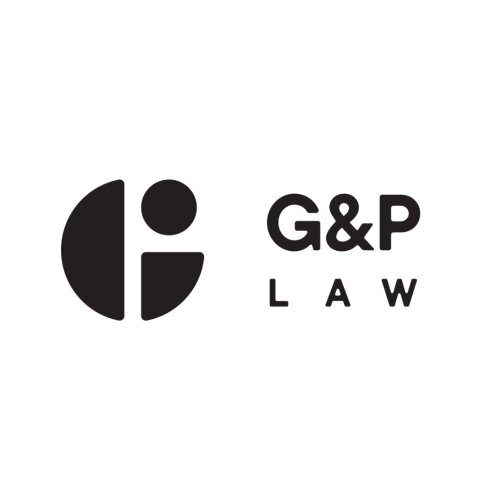Best Oil, Gas & Energy Lawyers in Bulgaria
Share your needs with us, get contacted by law firms.
Free. Takes 2 min.
Or refine your search by selecting a city:
List of the best lawyers in Bulgaria
About Oil, Gas & Energy Law in Bulgaria
The oil, gas, and energy sector in Bulgaria is a pivotal component of the country's economy, heavily influenced by both domestic and European Union (EU) regulations. Bulgaria's energy market is diverse, encompassing conventional fossil fuels like oil and gas as well as renewable energy sources such as wind, solar, and hydropower. The country's strategic geographical location makes it a critical transit route for gas pipelines from Russia to Southern Europe. This industry necessitates a complex legal framework to handle transnational agreements, environmental concerns, and adherence to EU energy directives.
Why You May Need a Lawyer
Individuals and businesses operating within the oil, gas, and energy sectors may face numerous challenges requiring legal assistance. Common situations include negotiating and drafting contracts for the sale or distribution of energy, obtaining necessary permits and licenses, navigating environmental regulations, resolving disputes related to land use or easements, and ensuring compliance with EU energy directives. Additionally, with Bulgaria being part of the EU, understanding the complex regulatory environment and cross-border trade implications is crucial, necessitating expert legal guidance.
Local Laws Overview
Bulgaria's legal framework for oil, gas, and energy is shaped by both national legislation and EU regulations. Key aspects include the Energy Act, which regulates the activities of energy companies and sets the framework for securing energy resources and grid access. The law on Subsoil prescribes regulations for exploration and extraction activities, while environmental regulations govern the industry's impact on ecosystems. Additionally, Bulgaria adheres to the EU's Third Energy Package, aimed at creating a competitive internal energy market, which impacts national policies on energy distribution and supplier independence.
Frequently Asked Questions
1. What permits do I need to start an energy project in Bulgaria?
You need to obtain several permits including exploration licenses, construction permits, and an operational license depending on the type of project you wish to undertake.
2. How does the Bulgarian government regulate energy prices?
The Energy and Water Regulatory Commission (EWRC) regulates energy prices, ensuring they are fair and competitive. The commission sets tariffs for electricity and gas distribution companies.
3. Are there incentives for renewable energy projects in Bulgaria?
Yes, Bulgaria offers incentives such as feed-in tariffs for renewable energy projects. These support the production of energy from renewable sources, in line with EU directives.
4. What is the role of the Bulgarian Energy Holding (BEH)?
The BEH is a state-owned entity that oversees energy resources in Bulgaria, including oil, gas, and electricity sectors, ensuring strategic development and competitiveness.
5. What environmental regulations affect the oil and gas sector?
Oil and gas projects must comply with national and EU environmental standards, including Environmental Impact Assessments (EIA) and adherence to the EU’s climate and energy policies.
6. Can foreign companies invest in Bulgaria's energy sector?
Yes, foreign companies are encouraged to invest. They must comply with Bulgarian laws and EU regulations and often partner with local companies.
7. How is Bulgaria progressing towards energy sustainability?
Bulgaria is committed to increasing the share of renewable energy in its energy mix and reducing carbon emissions as part of the EU's Green Deal goals.
8. How does Bulgaria handle cross-border energy trade?
Bulgaria follows EU directives for cross-border energy trading, allowing for a liberalized and competitive market environment.
9. What is the significance of the Balkan Stream project?
The Balkan Stream is an extension of the Turkish Stream and is significant for the diversification of gas supplies and strengthening regional energy security.
10. What are the penalties for non-compliance with energy regulations?
Penalties can include fines, revocation of licenses, or cessation of operations, depending on the severity of non-compliance and the specific regulation violated.
Additional Resources
For those seeking more information or legal advice in the field of oil, gas & energy in Bulgaria, the following organizations can be useful:
- The Ministry of Energy of Bulgaria
- The Energy and Water Regulatory Commission (EWRC)
- Bulgarian Energy Holding (BEH)
- National Statistical Institute for Energy Market Reports
- Consulting with law firms specializing in energy laws
Next Steps
If you need legal assistance in the oil, gas, and energy sector in Bulgaria, it is crucial to engage a lawyer or law firm with specialization in this field. Consider the following steps to proceed:
- Identify the specific legal issues or requirements you face.
- Consult with a lawyer experienced in energy law who understands both Bulgarian and EU regulations.
- Gather all relevant documentation and contracts related to your project or issue.
- Discuss with your lawyer the potential strategies and solutions available.
- Stay informed about changes in regulations that may impact your operations.
Lawzana helps you find the best lawyers and law firms in Bulgaria through a curated and pre-screened list of qualified legal professionals. Our platform offers rankings and detailed profiles of attorneys and law firms, allowing you to compare based on practice areas, including Oil, Gas & Energy, experience, and client feedback.
Each profile includes a description of the firm's areas of practice, client reviews, team members and partners, year of establishment, spoken languages, office locations, contact information, social media presence, and any published articles or resources. Most firms on our platform speak English and are experienced in both local and international legal matters.
Get a quote from top-rated law firms in Bulgaria — quickly, securely, and without unnecessary hassle.
Disclaimer:
The information provided on this page is for general informational purposes only and does not constitute legal advice. While we strive to ensure the accuracy and relevance of the content, legal information may change over time, and interpretations of the law can vary. You should always consult with a qualified legal professional for advice specific to your situation.
We disclaim all liability for actions taken or not taken based on the content of this page. If you believe any information is incorrect or outdated, please contact us, and we will review and update it where appropriate.
Browse oil, gas & energy law firms by city in Bulgaria
Refine your search by selecting a city.

















